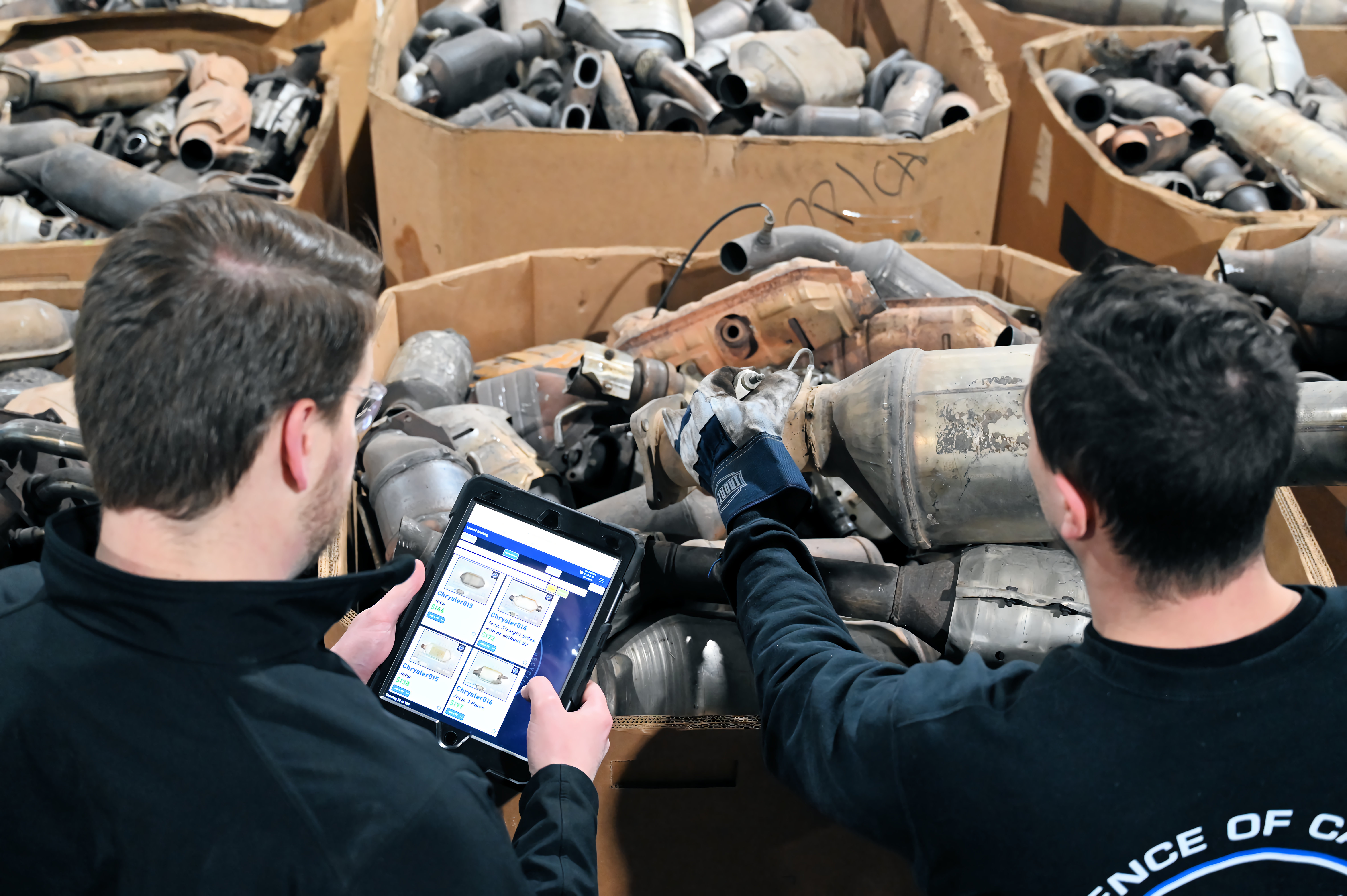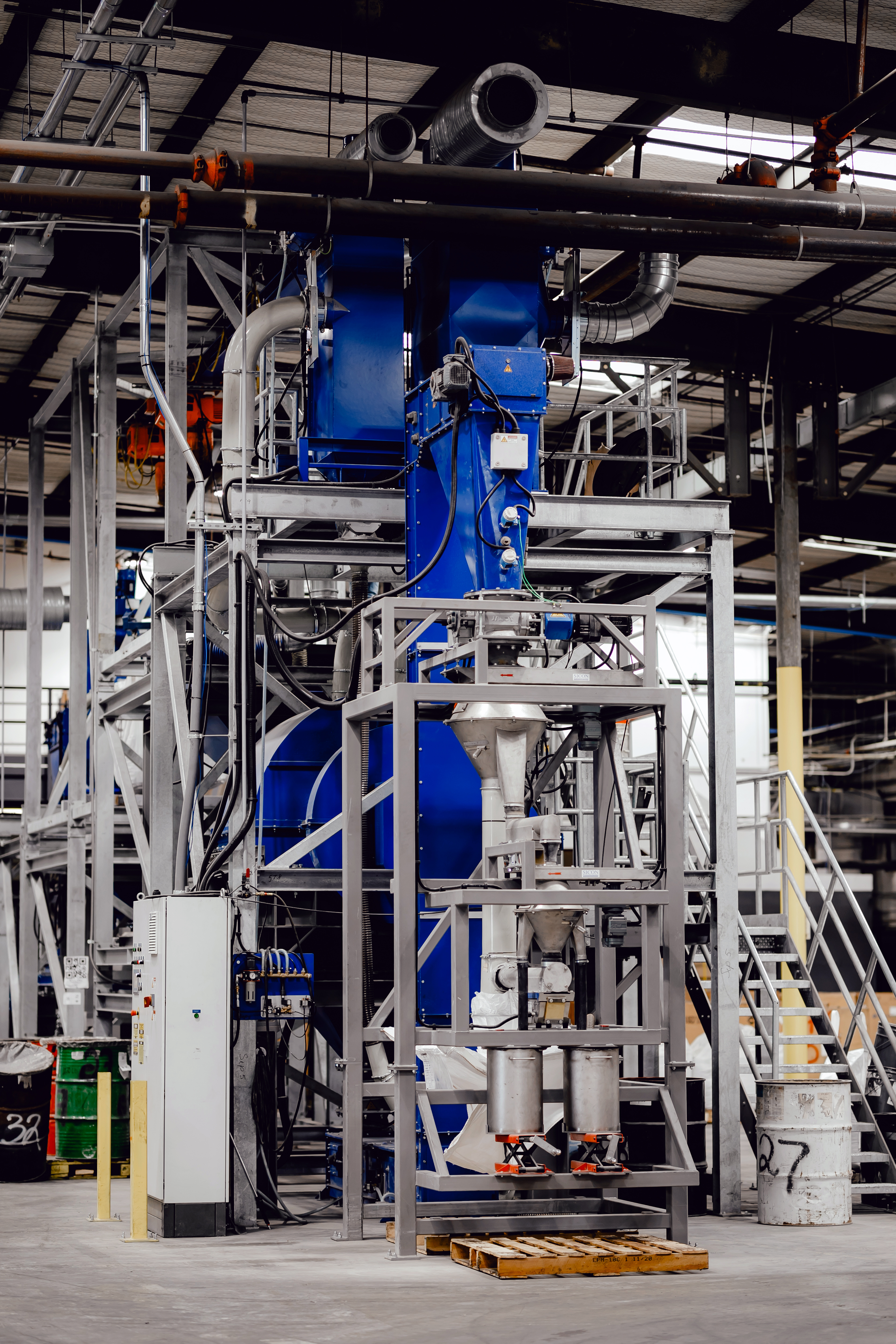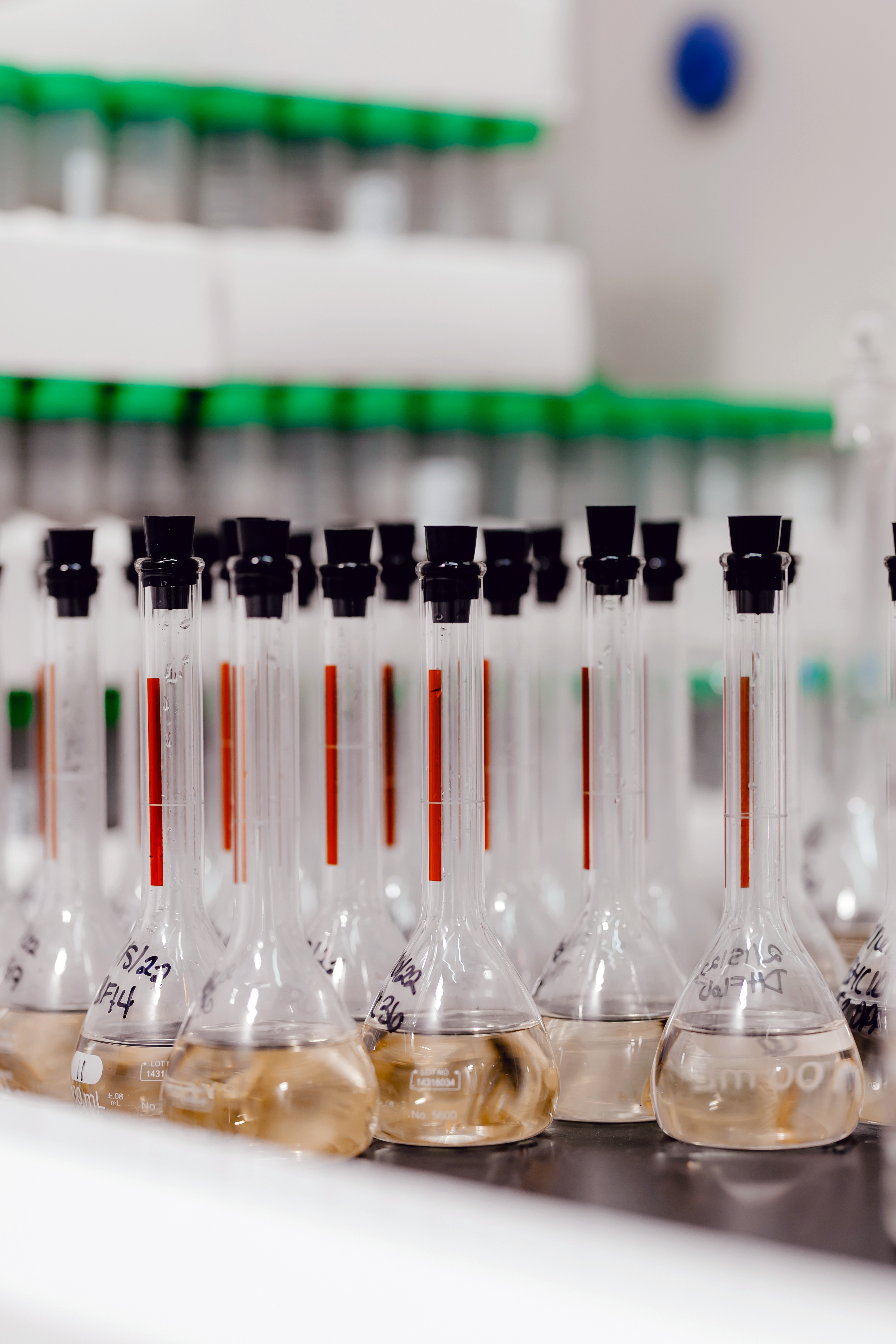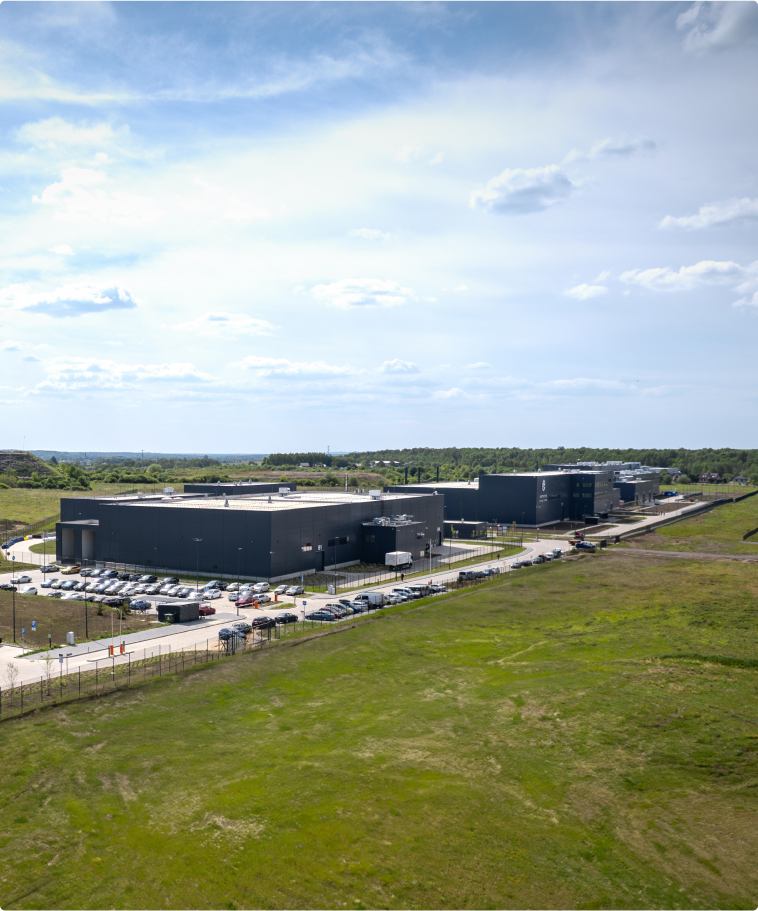Elemental North America is committed to remaining at the forefront of innovation in converter recycling technology.

In the Field
With the combined footprint of PGM of Texas, Legend Smelting and Recycling, Daniel Ball Converter Recycling, and Maryland Core Inc., we operate the largest network of catalytic converter recyclers in the industry.
Our free app, available to approved customers, offers a comprehensive database with detailed information on thousands of converters and recyclables. This data has been collected over decades through in-house lab testing to determine precious metal content, making it a valuable resource for our customers.

In the Shop
Multiple Sampling Line Sizes
We have processing locations nationwide, each with unique capabilities. Whether it’s a local shop with a few old converters or a dealership with large volumes, we can scale our operations quickly and efficiently to meet any customer’s needs.
Our Tools
Hydraulic shears are used to cut open catalytic converters and extract the valuable material inside. A built-in dust collection system ensures that as much of the material as possible is recovered. The extracted material is then finely ground using ball and hammer mills, creating a uniform powder. This powder is sampled and tested in the lab to determine its contents.

In the Lab
At Elemental North America, we use advanced technology to ensure precise analysis of catalytic materials.
First, the material is analyzed using XRF (X-Ray Fluorescence), which identifies elements by measuring the x-rays they emit.
The catalyst sample is then processed in an electric fusion furnace to form a melt that is processed via ICP.
ICP (Inductively coupled plasma optical emission spectroscopy) uses plasma to break down the material, allowing us to measure the elements it contains.
Additionally, we use specialized carbon analyzers to detect excess carbon, ensuring material quality before processing.

In Zawiercie
With the launch of Elemental Global’s new smelting and refining plant in Zawiercie, Poland, Elemental North America is now the only catalytic converter recycler in the country managing the entire recycling process in-house. This includes:
- Purchasing converters and scrap from various sources (e.g., salvage yards, auto shops, dealerships)
- Processing and testing the converters in our lab
- Smelting catalyst material into matte or slag
- Refining it into pure platinum, palladium, and rhodium
By controlling every step, we offer customers greater transparency, increased security, and fewer middlemen. Additionally, our closed-loop recycling minimizes environmental impact by reducing waste and supporting the reuse of critical materials.
For example, nearly 800 pounds of earth and rock must be mined to extract the same amount of precious metals found in just one catalytic converter, weighing about 3.3 pounds (Waste Advantage Magazine, April 2021). Through recycling, we significantly reduce the need for such resource-intensive mining, helping to conserve natural resources and lower environmental harm.
Working Together
For You
PGM of Texas, Legend Smelting and Recycling, Daniel Ball Converter Recycling, and Maryland Core Inc. have united as Elemental North America. Each company comes with decades of expertise in recycling strategic metals. The end result? A seamless recycling process, from collection to refinement.
Together, we’re setting new standards for innovation, sustainability, and environmental responsibility in the industry.
Ceramic catalysts in catalytic converters contain valuable platinum group metals (PGMs) such as platinum, palladium, and rhodium. Recycling these catalysts recovers critical materials, supporting the automotive, aeronautical, and pharmaceutical industries while promoting environmental sustainability.
Metal catalysts, commonly used in industrial processes and automotive applications, contain the same valuable precious metals as ceramic catalysts. Recycling them is a more intensive process that not all processors are equipped to handle, but it’s just as vital for recovering these strategic resources, minimizing the need for mining, and promoting sustainable manufacturing practices.
Diesel Particulate Filters (DPF) in diesel engines reduce emissions by capturing harmful particulates. Recycling DPF filters recovers valuable materials like precious metals and ceramics, supporting cleaner air and more sustainable automotive practices.
Oxygen (O2) sensors are vital components in vehicle exhaust systems, measuring oxygen levels to optimize engine performance and reduce emissions. Similar to other emission control parts, they contain valuable platinum group metals (PGMs).

